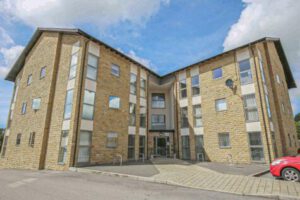Student Apartment in Lancaster – Council Tax Analysis
Renting a student apartment in Lancaster is a great way to immerse yourself in the culture of this English city. It is rich in places to shop with high street stores like JD Sports, River Island and TK Maxx alongside a great selection of independent shops. There are also plenty of cafes, bars and restaurants that students love to visit in their spare time.
Each year, many Lancaster student accommodation move to Lancaster from all over the world to attend one of the universities in the area and take advantage of the great learning opportunities that this city has to offer. The central neighbourhood of this city is the preferred choice for many of them as it has a variety of bars, cafes and clubs where they can relax in their spare time. It is also just a short bus ride or cycle from the university campus.
There are currently around 21,000 people living in the city, and the council has made a commitment to achieve more affordable homes for both rental and purchase. This can be done through developing new properties, or finding ways to protect and redevelop existing structures.
The council has set aside £1m to tackle this problem. Its Housing Strategy is designed to help achieve this goal.
Despite the fact that the city has some of the lowest house prices in Lancashire, it still struggles to meet demand for affordable homes. This is mainly due to the fact that there are not enough suitable homes being built. This is partly because the property market is very volatile and developers are reluctant to invest in new developments.

Renting a Student Apartment in Lancaster – Council Tax Analysis
According to the council’s own figures, it has a shortage of affordable Lancaster student accommodation of almost 6,000. This is expected to rise to 11,000 over the next 10 years. This is a big rise from the current number of available properties, and it could cause an exodus of young people from the city.
In order to tackle this issue, the council is introducing new measures to reduce the number of second homes in the city. These include a levy on second homes and applying a premium to vacant properties. This is similar to what has been implemented in Wales, and it is believed that this measure could ease the pressure on local housing.
Student accommodation serves as a hub for building a vibrant community and establishing meaningful connections. Living in close proximity to fellow students creates opportunities for social interaction, collaboration, and support. Whether it’s engaging in group study sessions, participating in shared activities, or simply sharing meals together, these interactions foster a sense of camaraderie and provide a support system during the college journey.
The levy will be charged on second homes and empty properties that have been unoccupied for more than two years. This will be levied on top of the standard property tax. However, the council has confirmed that it will not apply this to holiday lets or furnished lettings. It will also not affect owners who are working abroad or on business trips.
In addition to the levy, the council is also proposing that owners of second homes pay higher rates of business rate. The council has warned homeowners that they may be liable for the extra charge if they claim their property is classed as commercial and not residential.